
Address critical global challenges, train a new generation of scientists, use science diplomacy to advance science and peace – these core missions are required for global scientific progress. At the opening ceremony of the 28th TWAS General Meeting, a distinguished panel of science and policy leaders cited TWAS's leadership on these goals and urged the Academy to extend its work and influence in the years ahead.
Meeting in Trieste, Italy, the headquarters of TWAS and the European City of Science for 2020, the leaders praised TWAS's positive influence in its home city, in Friuli Venezia Giulia region and across Italy. At the global scale, they said, TWAS has a crucial role in assembling the expertise – both senior and early-career researchers – to address the United Nations Sustainable Development Goals (SDGs). And they observed that TWAS, along with colleagues at the Organization for Women in Science for the Developing World (OWSD), show a growing impact in creating opportunities for women scientists.
"We all know that today, the need for science diplomacy is growing," said Fabrizio Nicoletti, minister plenipotentiary-principal director for innovation and research in the Italian Ministry of Foreign Affairs and International Cooperation. The Ministry, he added, "strongly believes that TWAS can connect globally and locally, with an integrated approach toward the local scientific communities and an expanding global vision."
Watch the opening ceremony of the 14th TWAS General Conference and 28th General Meeting.
Some 300 accomplished global scientists, along with top Italian officials and the leaders in global science policy bodies, attended the opening ceremony on 27 November 2018. The three-day meeting was held on the campus of the Abdus Salam International Centre for Theoretical Physics (ICTP) in Trieste, Italy; additional support was provided by the International School for Advanced Studies (SISSA) and the National Institute of Oceanography and Experimental Geophysics (OGS), both based in Trieste. All of the organisations will play a prominent role in preparations for next year's EuroScience Open Forum (ESOF 2020), with Trieste hosting the event as the European City of Science.
Following the opening address by TWAS President Bai Chunli, speakers at the ceremony stressed the themes of partnership and cooperation in addressing challenges confronting humanity and the Earth. But a few specific themes echoed throughout the opening:
The Sustainable Development Goals define an urgent mission for international science.
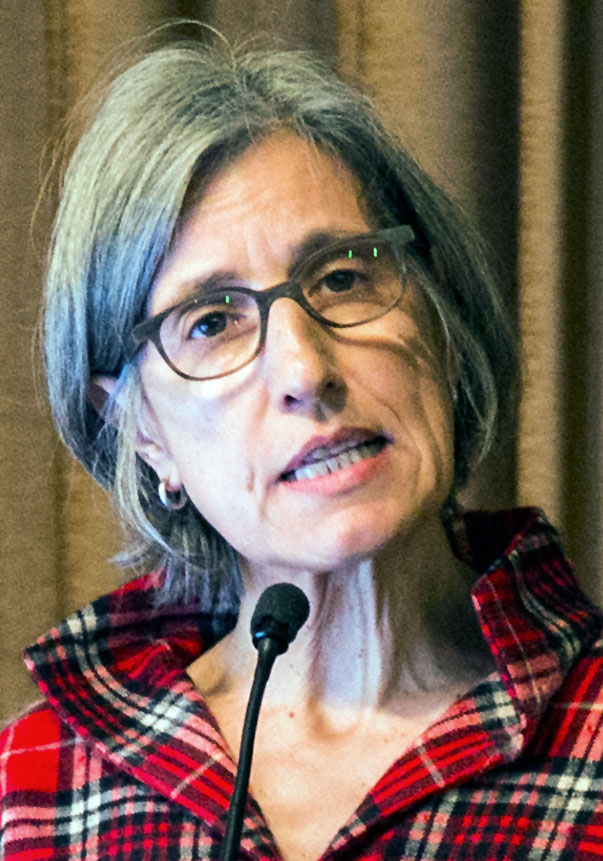 Flavia Schlegel, assistant director general in UNESCO's Natural Sciences Sector:
Flavia Schlegel, assistant director general in UNESCO's Natural Sciences Sector:
The SDGs are "actually the first development agenda that puts sciences as a driver, as an enabler, at the heart of all the initiatives to sustainable and peaceful development... I have the impression that 35 years ago, Professor Abdus Salam (TWAS's founder), already envisioned in some kind this agenda. He knew about the power of science and science cooperation. He knew about the leverage which science capacity can make for development."
Eva Ohlsson, senior research adviser in the unit for research cooperation at the Swedish International Development Cooperation Agency (Sida):
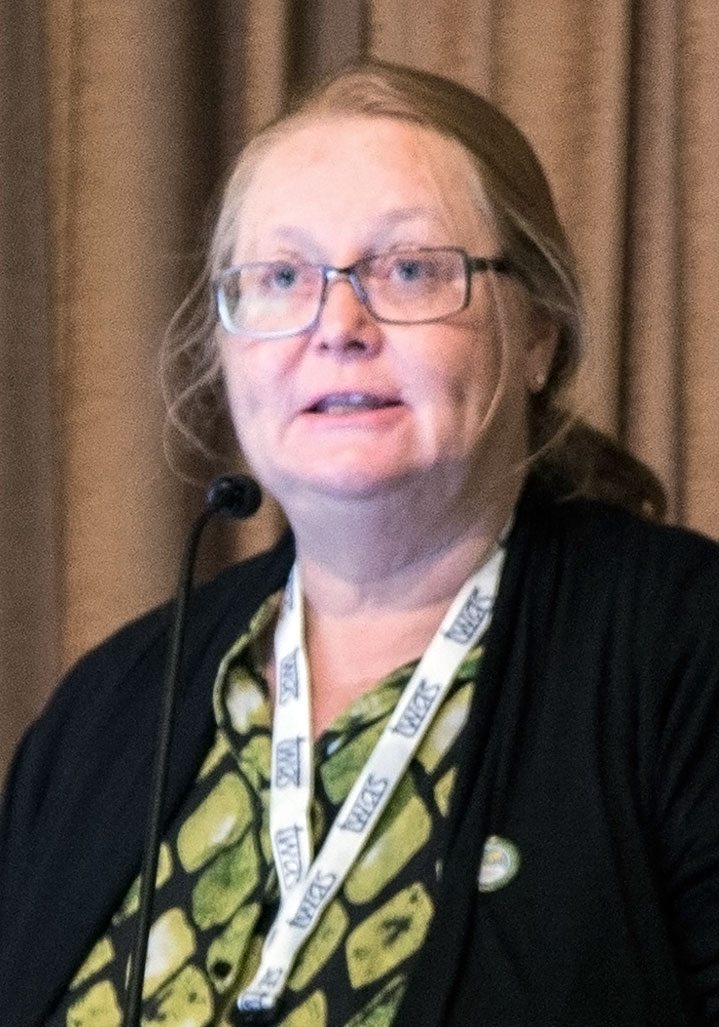 "TWAS Fellows and TWAS prize winners, you are essential for contributing to achieving the Agenda 2030 Sustainable Development Goals. You are so important for asking the critical questions, developing new methods, and seeking further knowledge using the situated perspective that only you have."
"TWAS Fellows and TWAS prize winners, you are essential for contributing to achieving the Agenda 2030 Sustainable Development Goals. You are so important for asking the critical questions, developing new methods, and seeking further knowledge using the situated perspective that only you have."
Science diplomacy is an essential mechanism for bringing nations together to pursue the SDGs and for other science-related initiatives.
Alessia Rosolen, counselor for Education, Universities and Research for the Autonomous Region of Friuli Venezia Giulia (Italy):
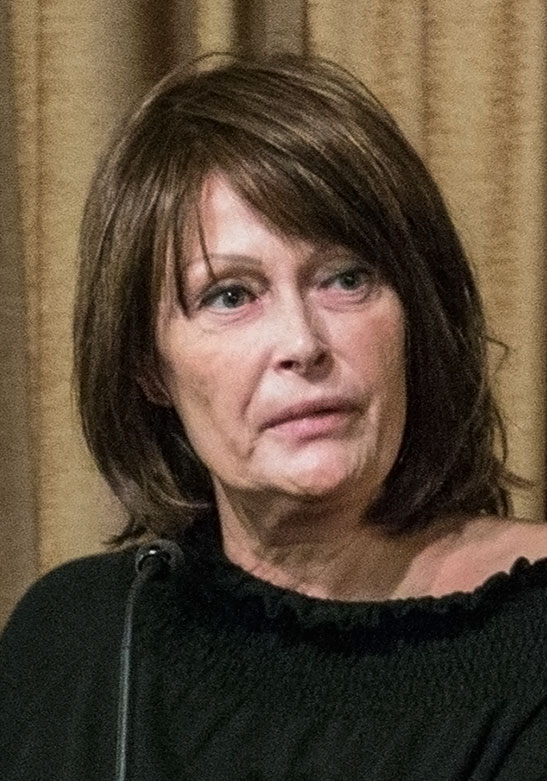 "It's widely believed that science diplomacy represents an emergent dimension of international relationships. In a landscape marked by big global challenges....the internationalisation of research requires frequent interactions between science and diplomacy.
"It's widely believed that science diplomacy represents an emergent dimension of international relationships. In a landscape marked by big global challenges....the internationalisation of research requires frequent interactions between science and diplomacy.
"The growing importance of science diplomacy is crucial for TWAS and for the Region of Friuli Venezia Giulia as well. We want to put together all of our subjects that work in science diplomacy – the Central European Initiative, OGS, TWAS, our universities, SISSA and others – to reinforce the web and make Friuli Venezia Giulia a centre for training in science diplomacy. Trieste could become the city of science – not only for ESOF 2020, but always through science diplomacy."
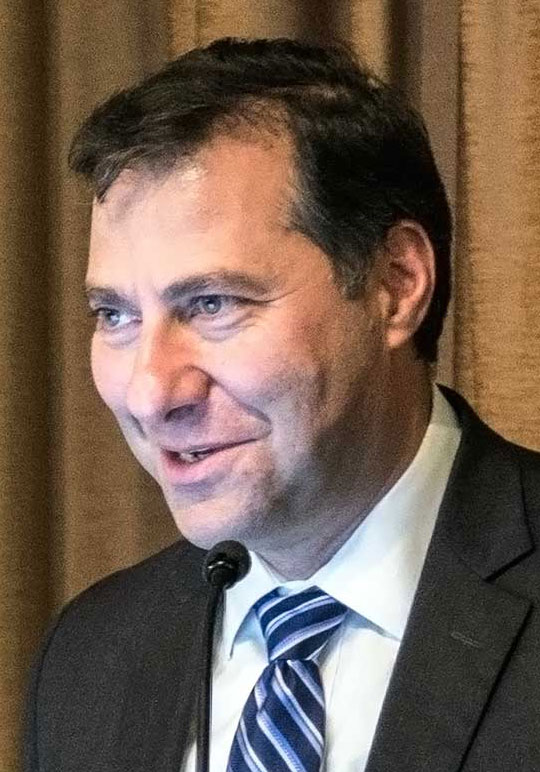 Vaughan Turekian, executive director of the Policy and Global Affairs Division at the US National Academies of Sciences, Engineering, and Medicine:
Vaughan Turekian, executive director of the Policy and Global Affairs Division at the US National Academies of Sciences, Engineering, and Medicine:
"This international academy – TWAS – joined by its partners at OWSD and the InterAcademy Partnership[link: http://www.interacademies.org/] – reflects the international nature of science and the need for cooperation toward our shared goals. The critical ties developed through scientific research and our joint work on the challenges confronting the world ... offer a productive way to build and maintain the connections among people, communities, institutions and nations to reach a better world. In many ways, this is the hallmark of science diplomacy."
Increasing and improving opportunities for women in science is required to advance scientific knowledge and address global challenges.
Ylann Schemm, director, the Elsevier Foundation
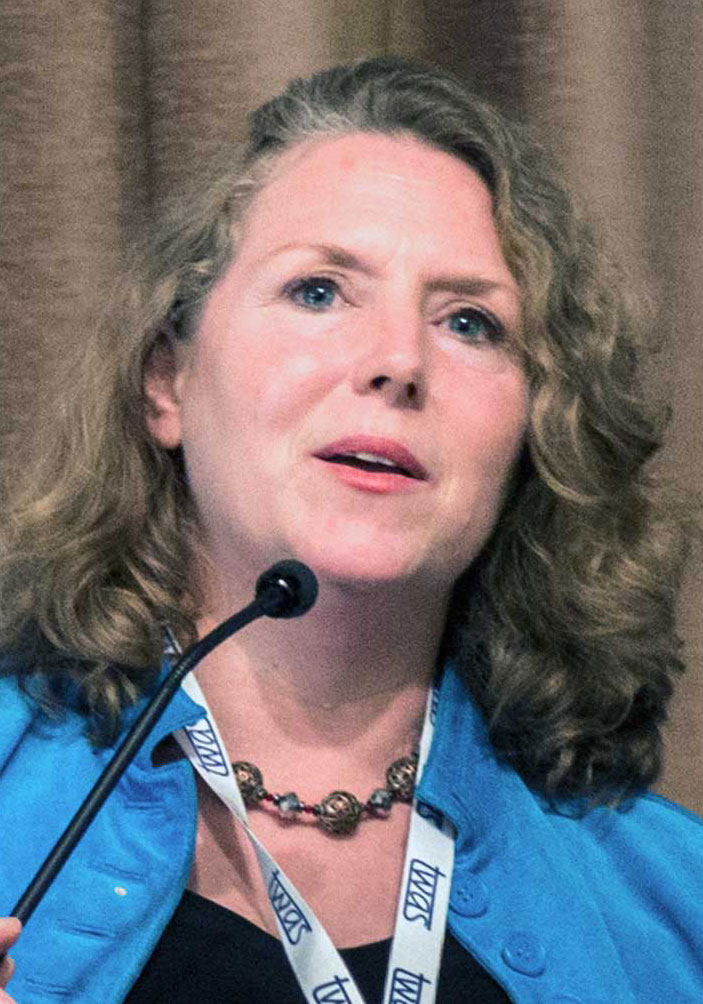 "TWAS has been a forerunner in terms of sustainability science, but also in terms of gender." She cited TWAS efforts to increase women among its Visiting Experts and in other programmes, and the OWSD role in organising and supporting the OWSD-Elsevier Foundation Awards for Early-Career Women Scientists in the Developing World.
"TWAS has been a forerunner in terms of sustainability science, but also in terms of gender." She cited TWAS efforts to increase women among its Visiting Experts and in other programmes, and the OWSD role in organising and supporting the OWSD-Elsevier Foundation Awards for Early-Career Women Scientists in the Developing World.
"There's no room for complacency, and that's where funders and partners can play a role in supporting that journey... It's something that every organisation is on: How can we create an inclusive environment in our organisations and conferences so that men and women feel a part of it, so that people from Africa feel a part of it, so that we really can bring all of our amazing brains here and work together... We have a positive role to play as partners to keep up the positive pressure. It's not as though we have the answers – none of us do. But we can contribute."
TWAS holds leadership responsibilities for science in the developing world, and in bridging South and North.
Flavia Schlegel (UNESCO):
"TWAS has provided a vision, a roadmap, that led many developing or emerging countries to embrace science for sustainable development. Through its PhD programmes, its research grants, the visiting scientist programmes, or now its science diplomacy work, TWAS has touched tens of thousands of scientists and it has made the case for the importance of South-South Cooperation.
"All of you are this remarkable network of individual talent and expertise. When you consider the international breadth of this membership and the range of skills, experience and science you represent, it is evident that the members of TWAS have the potential to provide global scientific leadership at a time of great need. The need to bridge the gap between the genders in the sciences, the need to give a voice against fake news in our post-fact, post-truth times... a time where science is at risk, whether it's being universities and libraries being bombed, scientists being forced to flee their countries because of violent extremism – this is when we need you, TWAS, as a voice for science in the South and globally. It is a voice that should be heard and needs to be heard."
Eva Ohlsson (Sida):
TWAS is very important to Sida because it's one of the few organisations that support basic sciences through individual research grants to researchers in the form of laboratory equipment, scientific literature, consumables and important participation in international conferences. Sida appreciates very much the flexibility that TWAS has shown in its work for the grantees in the science-and technology-lagging countries, which is our main target group. This flexibility is key for success in these countries."
Vaughan Turekian (US National Academies):
"It is TWAS and organisations such as TWAS that will need to play a role in addressing issues critical to this planet that we all share."
TWAS is an important leader among the research institutions of Trieste, Friuli Venezia Giulia and Italy.
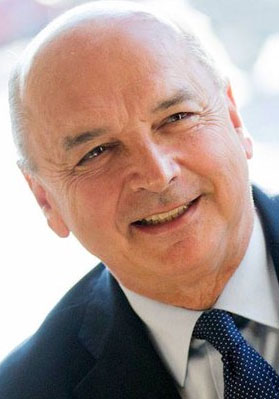 Roberto Dipiazza, mayor of Trieste (prepared statement read by TWAS Executive Director Romain Murenzi)
Roberto Dipiazza, mayor of Trieste (prepared statement read by TWAS Executive Director Romain Murenzi)
"Your presence here in Trieste underlines once more the international role of our city within the scientific world.... The proof of that is the EuroScience Open Forum nomination of Trieste as the European City of Science in 2020. Your scientific work is per se important, but more important I think is that science can act as a bridge that links different cultures, a common ground where all can work together to help our communities and our nations grow."
Fernando Quevedo, director of the Abdus Salam International Centre for Theoretical Physics (ICTP):
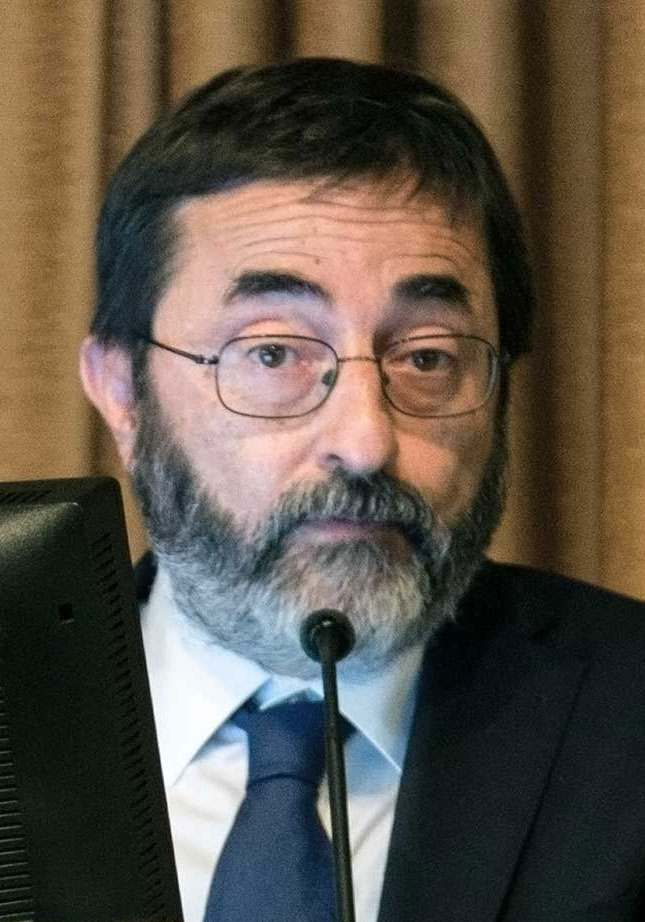 "TWAS and ICTP – we are sister institutions. We are a little bit older, but we had the same parents, the same founders and the same supporters and the same administration, and so in that sense we feel very proud and very attached to TWAS. Over the years we have shared the same goals and the mission to support science worldwide, and particularly for developing countries. We have been doing it for many years together."
"TWAS and ICTP – we are sister institutions. We are a little bit older, but we had the same parents, the same founders and the same supporters and the same administration, and so in that sense we feel very proud and very attached to TWAS. Over the years we have shared the same goals and the mission to support science worldwide, and particularly for developing countries. We have been doing it for many years together."
Fabrizio Nicoletti, (Italian Ministry of Foreign Affairs):
"Italy considers TWAS as a virtuous organisation and we will continue ensuring our support, confirming our commitment to the Academy. We appreciate that the Academy since its founding in 1983 has proved to be a very dynamic organisation that ensures strong and active support to young scientists from developing and emerging countries with the aim of reducing and eventually removing the existing gaps in terms of knowledge and scientific capacity."
See more coverage of the 28th TWAS General Meeting.
Edward Lempinen

